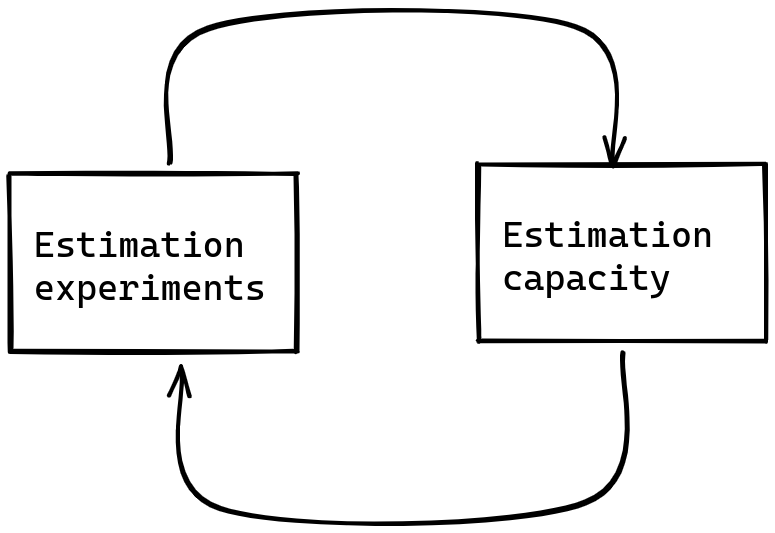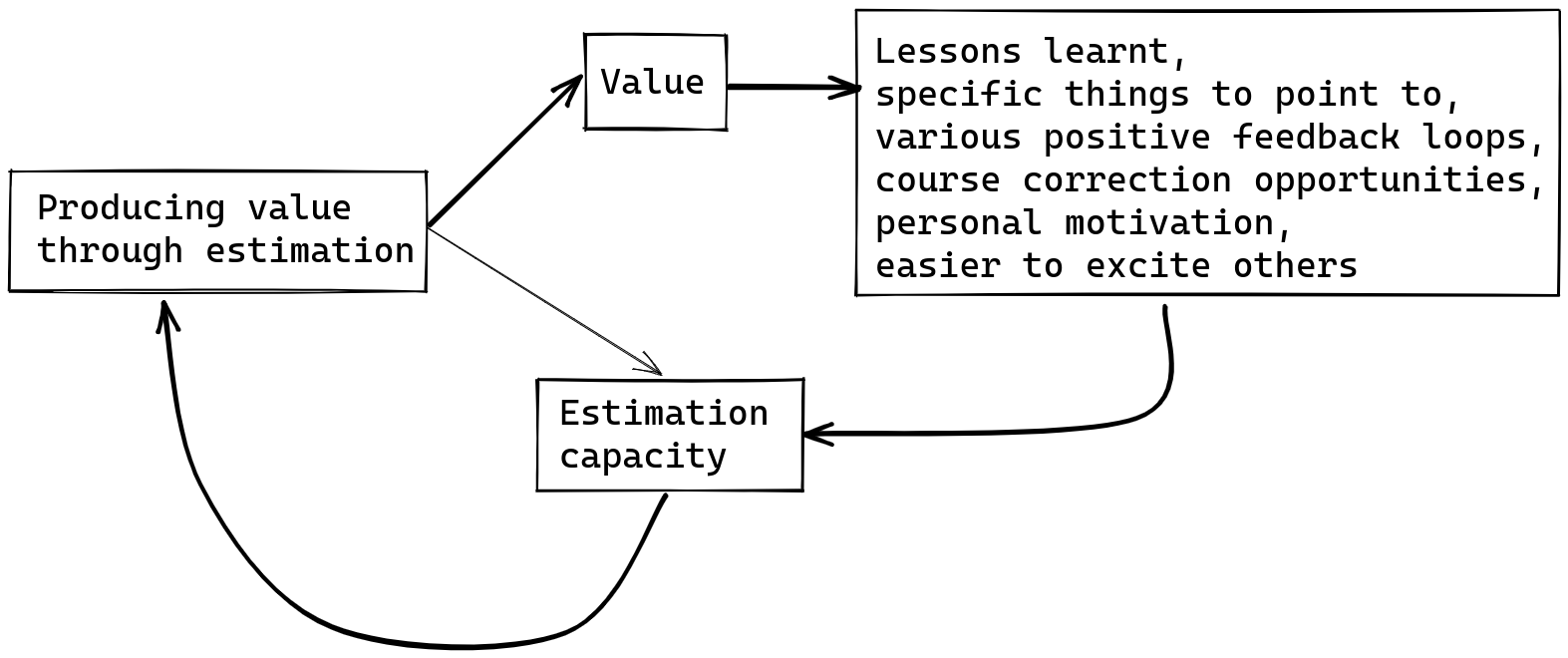Brief thoughts on my personal research strategy
Here are a few estimation related things that I can be doing:
- In-house longtermist estimation: I estimate the value of speculative projects, organizations, etc.
- Improving marginal efficiency: I advise groups making specific decisions on how to better maximize expected value.
- Building up estimation capacity: I train more people, popularize or create tooling, create templates and acquire and communicate estimation know-how, and make it so that we can “estimate all the things”.
Now, within the Quantified Uncertainty Research Institute I have been kind of trying to do something like this:

That is, I have in theory been trying to directly aim for the jugular of growing evaluation capacity directly. I believe that this is valuable because once that capacity exists, it can be applied to estimate the many things for which estimation is currently unfeasible. However, although I buy the argument in the abstract, I have been finding that a bit demotivating. Instead, I would like to be doing something like:

I think I have the strong intuition that producing value in between scaling produces feedback that is valuable and that otherwise can’t be accessed just by aiming for scaling. As a result, I have been trying to do things which also prove valuable in the meantime. This might have been to the slight irritation of my boss, who believes more in going for the yugular directly. Either way, I also think I will experience some tranquility from being more intentional about this piece of strategy.
In emotional terms, things that are aiming solely for scaling—like predicting when a long list of mathematical theorems will be solved—feel “dry”, “unengaging”, “a drag”, “disconnected”, or other such emotional descriptors.
I can think of various things that could change my mind and my intuitions about this topic, such as:
- Past examples of people successfully aiming for an abstract goal and successfully delivering
- An abstract reason or intuition why going for scaling is such that it’s worth skipping feedback loops
- etc.